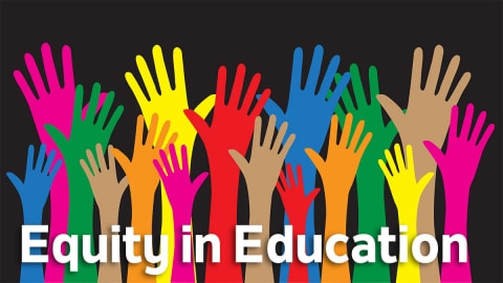
Equity in Education: Triumph Academy
Equity in Education: Triumph Academy
Published on May 15, 2018
From: Unconditional Education blog
Equity is at the heart of our Unconditional Education mission and partnerships. We strive to strengthen, bolster, and transform the systems of supports in schools so thatall students get what they need to succeed. We also strive to broaden our impact by inspiring policy change on the state-wide and national levels, so innovative and inclusive school solutions get the resources needed for implementation.
We recently had the opportunity to bring members of the California state finance team to Oakland where they toured Triumph Academy and met with staff. It was an opportunity for us to give the guests a chance to see the work and to understand the elements that lead to positive student outcomes and school-wide transformation in our Unconditional Education partnerships.
Triumph’s principal, Jessica Chacon, has participated in the National Equity Project (http://nationalequityproject.org/) for years. Their vision is “Every child in America has the right to a quality education. We support people to make good on that promise.”
In telling the powerful story of her work at Triumph, Jessica shared a realization that occurred to her as a third-year principal looking at her data. “I did not become a principal in this community to disproportionately suspend black boys. But looking at the numbers, I saw that was happening.” Jessica set out to change that by building a sustainable program that could be fully integrated into and aligned with her school culture and community. Tired of the old story where general education and special education programs always fight for limited resources, her goal was to create something transformative.
With input and partnership from Seneca staff over the years, the result is the Behavioral Health Program (BHP) that brings collaborative, integrated services to the kids on campus most in need of support. Students in the BHP benefit from supports tailored to their individual needs. Some of the students have IEPs, some do not. What is common for all of them is the coordinated team approach they benefit from. Every week all staff working with students in the BHP model come together (with school administrators present and participating) to maintain maximum cohesion. As a necessary complement to this high-tier support, the school continues to focus on their Tier 1 practices which include daily morning meetings, twice weekly Toolbox lessons, and Zones of Regulation work in each classroom.
Because the goal of the BHP is helping students internalize and integrate adaptive tools and not to require intensive supports forever, this year we focused on better defining the indicators that students were ready to step down from the BHP. Now when students meet their defined goals, the school hosts a “Progress Party” to celebrate the student’s achievements. In one such recent celebration, the student of honor reflected to Jessica, “Remember last year I was about to be expelled? Now I’m having a Progress Party!”
That type of student pride and celebration captures the heart of our mission for equity. But as important as those individual successes are for students in the BHP program, Jessica points out that the impact is wider than that: “This program didn’t just change things for things for those six kids. It changed the whole school.”
With appreciation to the Seneca staff who’ve been integral in the Triumph partnership: Danielle Saporta, Aaron Burney, Robyn Ganeles, and Kate Sherwood.
Blog Post Written By:
Jason Keppe, Director of School Partnerships